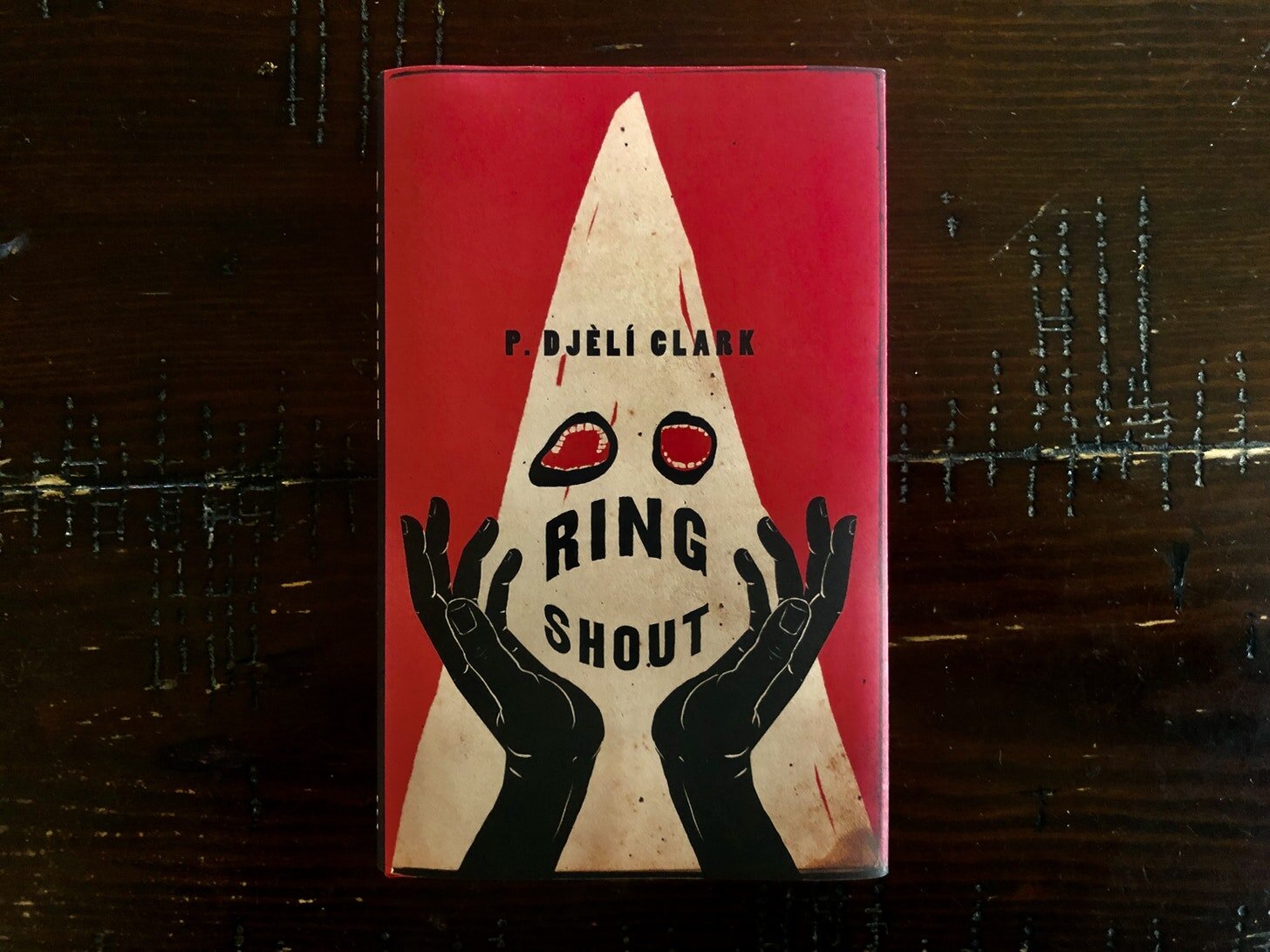P. Djèlí Clark’s Ring Shout reimagines Lovecraftian horror
/I recently blew through P. Djèlí Clark’s short novel Ring Shout. It’s a topical book for 2020, especially as the country deals with the issue of race inequality and racism. As the cover suggests, it’s a story that deals with the racism of the Ku Klux Klan, the terror group that arose in the aftermath of the Civil War, and again around the 1920s.
It follows a woman named Maryse Boudreaux and her companions as they contend with a rising tide of racism in the country in the aftermath of the First World War. Clark puts a supernatural spin on the movement, revealing that our reality is under attack from another dimension, with otherworldly creatures feeding off of the hatred and anger that drove that movement. They’re slowly infiltrating the ranks of the KKK, and are close to breaking through and taking over. Boudreaux can see these creatures, called Ku Kluxes, and she and her friends have been taking the fight to them, little by little, trying to stem the tide.
The book is a fast-paced, gripping thriller: I could hardly put it down, and Clark masterfully ups the tension, dropping the reader into the midst of a pitched battle, and quickly upping the stakes to really put pressure on the characters as the goals of the Ku Kluxes becomes more apparent.
The novel makes for a nice accompaniment for another recent novel, N.K. Jemisin’s The City We Became, in which she explores the modern state of racism through gentrification and white exceptionalism and fragility in New York City. In both books, we see otherworldly terror used as a metaphor for systemic racism, and Clark’s work taps into that systematic horror that groups like the KKK brought with to the people it sought to oppress.
This is a topic that’s been top of mind for me in recent years, and it’s something that I touched on earlier this year with my interview with Lovecraft Country author Matt Ruff, and my thoughts on The City We Became shortly after it was released. Along with books like Victor LaValle’s The Ballad of Black Tom and Ruthanna Emrys’ Winter Tide, there’s a growing movement to take the racist legacy that is H.P. Lovecraft, and subvert his cosmic horror and use the tropes as a way to point to the very real horrors that racism and bigotry holds for the people it targets. Jemisin, LaValle, Clark, and Emrys all center their stories on the marginalized: people who would were seen by Lovecraft (and even his modern fans) as undesirable, and putting the traditional systems of power that might have otherwise been heroic for Lovecraft on the other end of the equation.
This, I think is why Lovecraft’s cosmic horror still works, and are stronger when you incorporate the real world history. As Ruff said in our interview, Lovecraft isn’t going anywhere — he’s too deeply embedded in the DNA of the genre. But Lovecraft’s fear and anxiety about the state of the world isn’t limited just to him, and if you change up details of ‘Shadow Over Innsmouth’, you “could easily be a story of a black traveler getting stranded in a sundown town.”
People fighting against an incursion of evil was absolutely a story Lovecraft has written. But Ring Shout has the backing of aa better understanding of history behind it, something the wider public is finally getting an idea about as we see statues of racists being toppled around the country. It’s a powerful little book, and one of a struggle I hope that we’ll see more of in the future.

